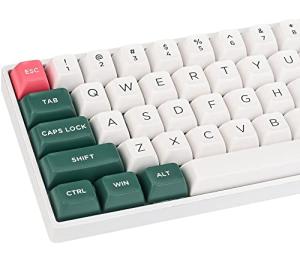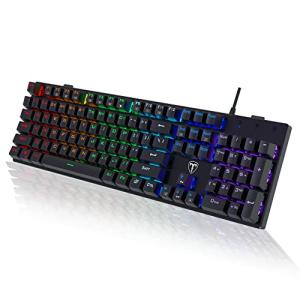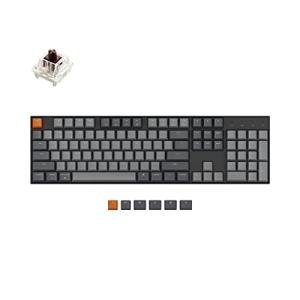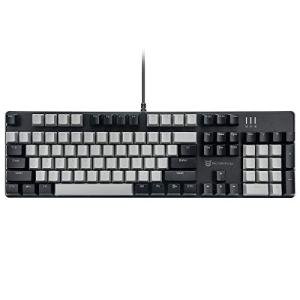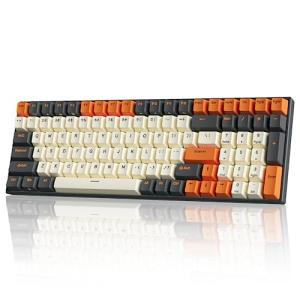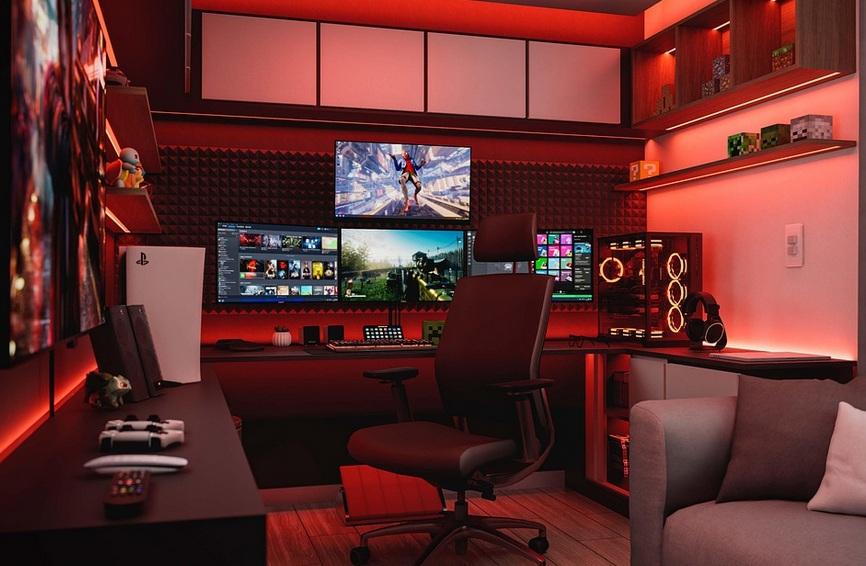If you’re wondering why mechanical keyboards steal the spotlight over membrane keyboards, let’s break it down. Mechanical keyboards use individual switches for each key, giving you a solid, satisfying feel when you type. It’s like a little celebration for your fingers every time they hit the keys. This not only makes typing more enjoyable but can also boost your speed and accuracy.
On the other hand, membrane keyboards rely on a rubber dome that sits underneath the keys. While they can get the job done, they tend to feel mushy, and you might find yourself bottoming out. Many users complain about a lack of tactile feedback, which can lead to more typos. If you value precision and quick response times, mechanical keyboards are what you’re after.
Durability is another big win for mechanical keyboards. These bad boys can last for years, thanks to their sturdy construction. With proper care, a good mechanical keyboard might just outlast your laptop or even your desk. Membrane keyboards, though cheaper, often wear out faster and can show signs of fading or failing within just a couple of years.
Customization is yet another perk that mechanical keyboards bring to the table. You can pick the type of switches that match your typing style—whether you prefer a clicky sound, a soft touch, or something in between. Plus, you can swap out keycaps and even customize the backlighting. Membrane keyboards don’t really offer those options. When it comes down to the Mechanical Keyboards Vs. Membrane Keyboards debate, it’s clear that mechanical keyboards deliver an overall better experience for typing and gaming.
Understand the Benefits of Mechanical Keyboards
When you dive into the world of keyboards, it's hard not to notice the buzz around mechanical keyboards. They're not just a trend; they come with some serious perks that can make your typing experience way better compared to membrane keyboards.
First off, let’s talk about tactile feedback. Mechanical keyboards give you a satisfying click or bump when you press a key. This not only feels great but also helps you know that your keypress registered. It makes typing feel more responsive, which is awesome if you’re typing a lot or gaming.
Next up is durability. Mechanical keyboards are built to last. Unlike membrane keyboards that can wear out after just a few years, mechanical ones can often handle tens of millions of key presses. If you’re investing in your setup, you want something that won’t give up on you too soon.
Customization is another big win. Many mechanical keyboards let you swap out keycaps or even change the switches under the keys. This means you can tweak your keyboard to match your style or typing preferences. That’s something you just can’t do with the typical membrane keyboard.
Finally, let’s not forget the aesthetics. Mechanical keyboards often come with cool RGB lighting options that can really make your setup pop. With styles ranging from sleek and minimalistic to loud and flashy, you can find a keyboard that fits your vibe perfectly.
Fogruaden 150 Keycap Set for Mechanical Keyboards
Transform your keyboard with vibrant colors and a comfortable feel for an unbeatable typing experience
Product information
£35.10
Product Review Score
4.38 out of 5 stars
182 reviewsProduct links
Membrane Keyboards and Their Drawbacks
Membrane keyboards are super common, especially with laptops and budget setups. They use a rubber dome below each key that creates a connection when you press down. It’s a simple design that keeps costs low, but it comes with a few drawbacks that you might want to think about, especially when you're weighing Mechanical Keyboards Vs. Membrane Keyboards.
One of the biggest downsides is the feel of the keys. Membrane keyboards don’t offer that satisfying tactile feedback that mechanical keyboards provide. The key presses feel mushy and can lead to a less enjoyable typing experience. If you type a lot, this can become a real hassle. You might find yourself getting tired or making more mistakes because you can't really tell when the key has registered.
Another issue is durability. Membrane keyboards don’t usually last as long as their mechanical counterparts. The rubber domes can wear out over time, leading to keys that stick or don't respond at all. On the other hand, mechanical keyboards are designed to handle millions of key presses, so they tend to stick around longer, making them a better investment in the long run.
Finally, customization options are pretty limited with membrane keyboards. You can't change the key switches or easily swap out keycaps like you can with mechanical keyboards. If you love personalizing your gear, that’s something to consider when you think about Mechanical Keyboards Vs. Membrane Keyboards.
Redragon K228 Full Size Mechanical Gaming Keyboard
Enhance your gaming experience with the Redragon K228 Full Size Mechanical Gaming Keyboard
Product information
£18.08
Product Review Score
4.93 out of 5 stars
174 reviewsProduct links
Finding the Right Keyboard for You
Choosing the right keyboard can feel overwhelming, especially with all the different options out there. If you’re stuck between mechanical keyboards and membrane keyboards, it helps to know what you want to get out of your typing experience. Are you a gamer who needs fast response times? Or maybe you just want a comfy setup for long work hours? Let's break down what to consider.
Mechanical keyboards typically feature individual switches under each key, which gives you a satisfying click and a more responsive feel. If you like the idea of customizing your keyboard with different switch types for varying sounds and feedback, mechanical keyboards are the way to go. These keyboards usually last longer, too, so you won’t have to worry about them wearing out quickly.
On the flip side, membrane keyboards are usually quieter and can feel softer when you press down. They're often lighter and more portable, making them a good choice if you’re on the go. If you don’t mind sacrificing some of the tactile feedback and durability for a less noisy experience, a membrane keyboard might be a better fit.
Consider your budget as well. Mechanical keyboards can be pricier, especially if you’re eyeing high-end models with RGB lights and extra features. Membrane keyboards tend to be kinder on the wallet without skimping too much on basic functionality. Think about how much you want to spend and what you need most from your keyboard.
Ultimately, it's all about your personal preference. Give both types a try if you can, and see what feels right for you. Understanding the differences between mechanical keyboards and membrane keyboards will guide you in making a choice that fits your typing style and needs perfectly.

